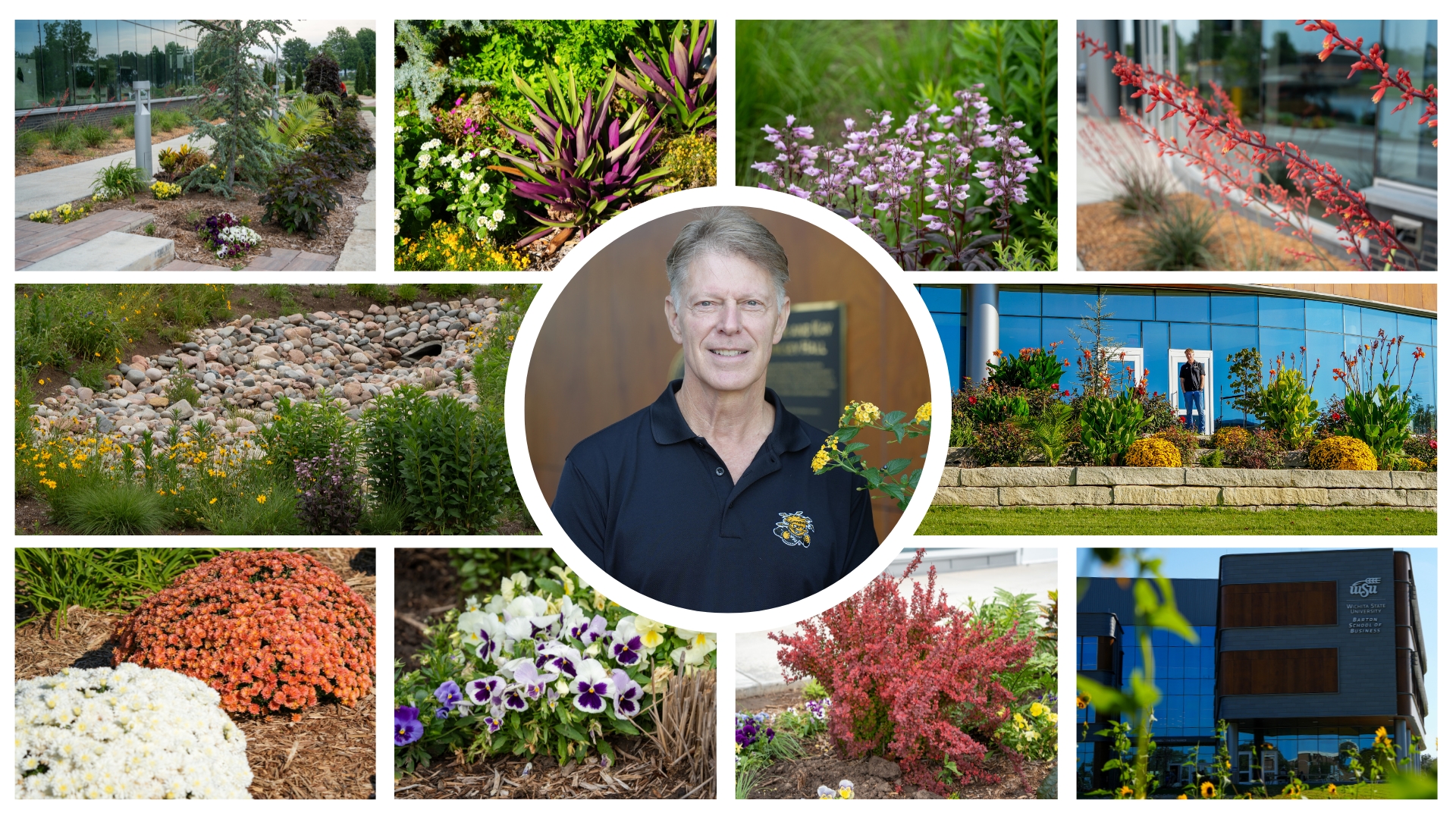Woolsey Hall, home of the W. Frank Barton School of Business at Wichita State University, recently underwent its first strategic exterior landscaping cycle under the watchful eye of Rick Case, WSU’s First Gentleman. Case was kind enough to volunteer his time to the project, guiding and facilitating the reimagining and amplification of Woosley Hall’s exterior while also ensuring that the building retained its LEED (Leadership in Energy and Environmental Design) Gold Certification status. LEED is the most widely used green building rating system in the world and an international symbol of excellence.
“We are honored to have Rick volunteer his time to re-envision the Woolsey Hall landscape,” said Dr. Larisa Genin, Dean of the Barton School. “His extensive background in agronomy and his love for the university makes him the perfect person to help elevate Woolsey Hall as a marquee location on campus and in the region. His hard work and collaboration with the WSU Facilities team has already made a massive impact on our home.”
Case grew up on a farm in Wakefield, Kansas, where his family had livestock and crops. At age 13, he started his own garden on the property. He grew so much corn, potatoes, strawberries, pumpkins and other produce that his family ended up selling their excess goods to grocery stores in the area. Case received his bachelor's degree in Agronomy and went on to earn his master’s degree in education from Kansas State University. He then began a career with the United States Department of Agriculture (USDA) for 37 years, serving in a variety of roles including county executive director for Butler County, director for Sedgwick County and district director for southcentral Kansas. As district director, he oversaw farm programs for 15 counties and farm loans for 17 counties. He retired in 2021.
“Coming back to education is like coming home,” said Case. “And with the Woolsey Hall landscaping, it’s combining all my experiences into one project. It was a natural fit for me to get involved.”
Case began the beautification of Woolsey Hall’s exterior by pulling weeds throughout the grounds and retaining forbs, which are native flowering plants also known as wildflowers that are beneficial to the area and environment. He also began to work with Barton School officials to establish structured gardens on the west side of the building. While structured gardens require more care and water, Case has created a plan to maximize the landscaping and number of gardens while maintaining Woolsey Hall’s LEED Gold Certification. The certification is maintained through a reduced parking footprint, dedication of 65% of Woolsey Hall’s site area to vegetation beyond turf grass and designed raingardens throughout the site. The use of native planting as part of the raingardens has allowed for a 62% reduction in water needed to maintain the area’s landscaping. In order to properly reinvigorate the gardens, Case has worked closely with the WSU Facilities team to educate and execute on the project.
“When good things happen, it requires a lot of people collectively doing a great job,” said Case. “The facilities team has worked really hard to implement the vision. They’ve worked tirelessly to get it to where it is by the end of the growing season. I just listened to help achieve the goal for everyone.”
Upkeep of the grounds will continue through the winter months. This year, Case plans to bring in more grasses and pollinator plants to the area, replace dead trees and enhance the gardens, including condensed planting, more color blocking and changing out red hibiscus for white varieties. He believes that the continued improvements will come to fruition during the spring and summer months and is excited for the impact it will bring.
“I feel a great responsibility to take care of the building and have it be a highlight of the campus,” said Case. “Woolsey is an extremely important building. It’s a crown jewel for the university and business program. We have a responsibility to be good stewards of it, and landscaping is a big part of that responsibility.”


